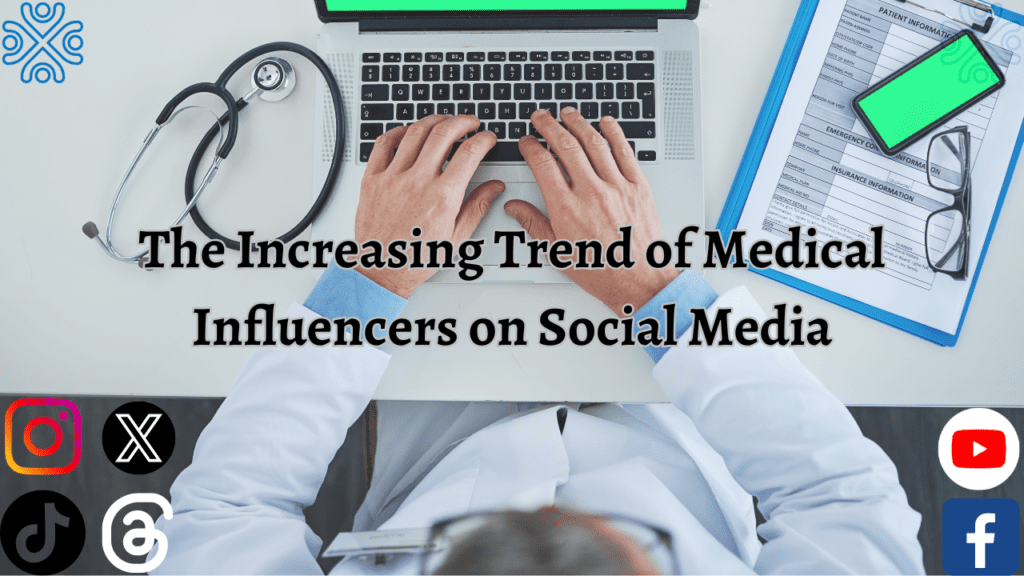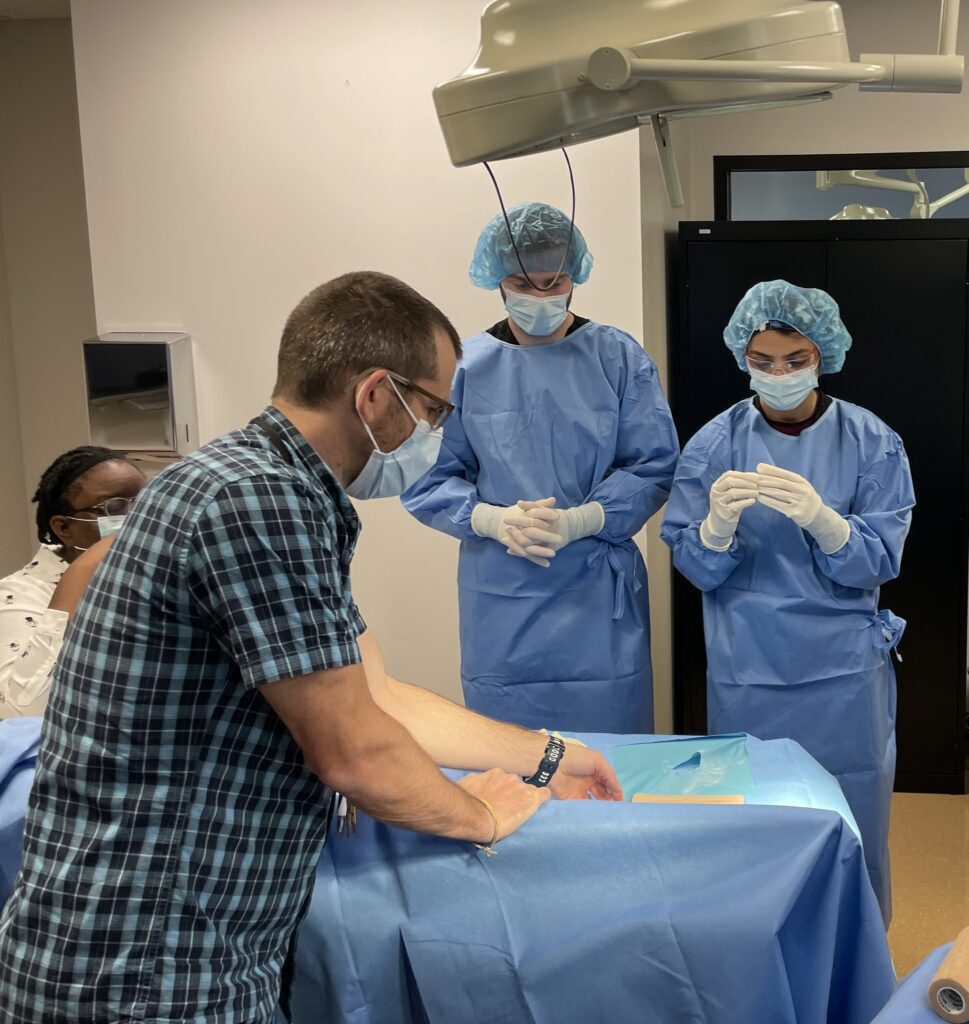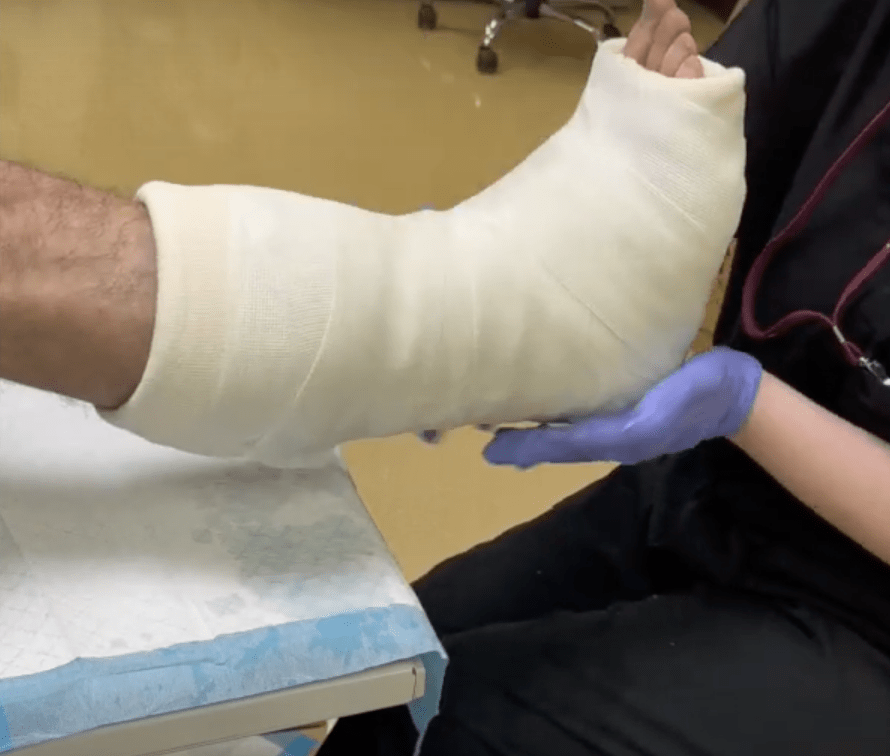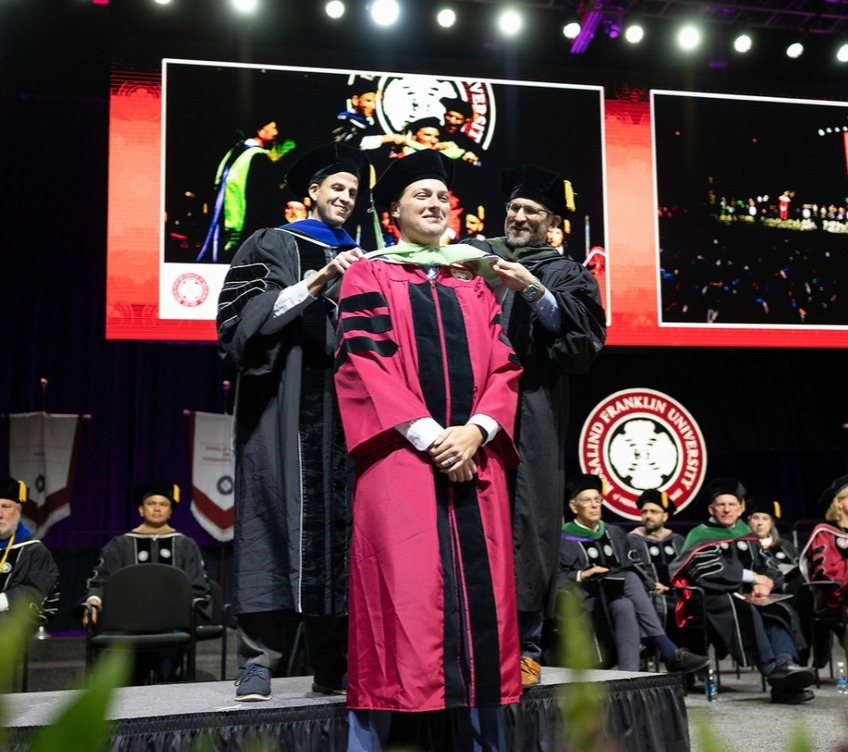Authored by Dr. Leland Jaffe; Associate Professor and Associate Dean; Podiatric Physician; Published on April 10th, 2024
In today’s digitally-driven world, social media platforms have become more than just tools for staying connected with friends and sharing updates on our lives. They’ve evolved into powerful platforms for information dissemination, entertainment, and even healthcare advocacy. One notable trend that has emerged in recent years is the rise of medical influencers – medical professionals who leverage their expertise and platform to educate and inspire audiences about various health and wellness topics.
What Is A Medical Influencer?
The term “influencer” may conjure images of a fashion influencer promoting the latest trends or travel enthusiasts showcasing exotic destinations. However, in the realm of healthcare, medical influencers are making a significant impact by providing valuable insights, debunking myths (at times), and fostering discussions around important health issues through social media use.
What Has Led To The Popularity Of These Individuals?
One of the key reasons behind the surge in healthcare influencers is the growing demand for accessible and relatable health information. With the abundance of misinformation circulating online, many people are turning to trusted voices within the medical community for guidance. Medical influencers, often doctors, nurses, dietitians, or other healthcare professionals, fill this gap by delivering (hopefully) evidence-based medical advice in a digestible format for the layperson.
Social media platforms like Instagram, YouTube, and TikTok have become popular mediums for social media influencers to share their knowledge. Through engaging posts, videos, infographics, and live streams, they cover a wide range of topics related to the healthcare industry, including preventive care, mental health, healthy lifestyle, fitness, chronic illnesses, and best practices. By using these platforms, medical influencers can reach vast audiences worldwide, transcending geographical barriers and demographics.
Moreover, medical influencers can add personal stories to healthcare education, humanizing complex medical concepts and fostering empathy and understanding. By sharing their own experiences, struggles, and triumphs, they connect with their followers on a deeper level, creating a sense of community and support. This personalized approach helps break down barriers and stigma surrounding certain health issues, encouraging individuals to prioritize their well-being and seek help when needed.
How Do You Trust the Credibility of Medical Influencers?
However, the rise of healthcare providers serving as medical influencers also raises important considerations regarding credibility, ethics, and responsibility. While many medical influencers are qualified professionals with genuine intentions, others may lack proper credentials or promote questionable practices for financial gain. Therefore, it’s essential for audiences to critically evaluate the credibility of the information shared and consult trusted sources when making healthcare decisions.
Trust in an online medical influencer can be established through several key factors. Firstly, transparency is paramount. The influencer should openly disclose their qualifications, experience, and any affiliations with medical institutions or commercial interests to ensure credibility. Providing evidence-based information supported by reputable sources and citing medical research helps build trust in their expertise. Consistency in delivering accurate and reliable health advice over time also reinforces trustworthiness. Engaging with their audience by responding to queries and addressing concerns demonstrates accountability and fosters a sense of reliability. Collaboration with medical professionals or organizations further enhances credibility, showing a commitment to upholding medical standards. Ultimately, an online medical influencer can earn and maintain the public’s trust by prioritizing transparency, evidence-based content, consistency, responsiveness, and collaboration.
Furthermore, medical influencers must adhere to ethical guidelines and prioritize the well-being of their followers. This includes providing accurate and reliable information, disclosing conflicts of interest, respecting patient privacy, and promoting diversity and inclusivity in healthcare representation. By upholding these standards, medical influencers can maintain trust and integrity within their communities while driving positive change in the medical field.
TOP HEALTH INFLUENCERS
Dr. Mike Varshavski “Dr. Mike”
Dr. Varshavski, widely known as “Dr. Mike,” has established himself as a prominent medical influencer in the digital sphere. With a combination of charm, expertise, and a genuine desire to educate, Doctor Mike has amassed a substantial following across various social media platforms; he currently has 11.7 million followers on his YouTube channel. As a practicing physician, he leverages his platform to demystify complex medical concepts, debunk health myths, and provide practical advice on wellness and healthcare. Dr. Mike’s approachability and relatability make him accessible to audiences of all ages and backgrounds, allowing him to effectively bridge the gap between medical professionals and the general public. Through his informative content and advocacy for healthcare accessibility, Dr. Mike continues to inspire and empower millions worldwide to prioritize their health and make informed decisions about their well-being.
Dr. Sanjay Gupta
Dr. Gupta, a distinguished neurosurgeon, and medical correspondent for CNN, stands as a formidable medical influencer renowned for his insightful reporting and commitment to public health. With his extensive medical background and expertise, Dr. Gupta has become a trusted voice in the realm of healthcare journalism, covering a wide range of medical topics with clarity and authority. Through his television appearances, articles, and social media presence, Dr. Gupta effectively communicates complex medical information in a manner that is both accessible and informative to the general public. Beyond his role as a journalist, Dr. Gupta actively engages in advocacy efforts, championing initiatives to improve healthcare access, raise awareness about important health issues, and promote medical literacy worldwide. His dedication to informing and empowering individuals to make informed decisions about their health has solidified his status as a leading medical influencer, shaping conversations and driving positive change in the healthcare landscape.
Dr. Kevin Pho “KevinMD.com“
Dr. Kevin Pho, a practicing internal medicine physician and founder of KevinMD.com, occupies a significant position as a medical influencer in the digital space. Through his widely read blog and active presence on social media platforms, Dr. Pho provides a platform for healthcare professionals to share their perspectives, insights, and experiences. His dedication to amplifying diverse voices within the medical community has contributed to KevinMD.com becoming a go-to resource for healthcare discussions and debates. Dr. Pho’s commitment to advancing healthcare communication and education is evident in his advocacy for patient-centered care, medical innovation, and the importance of physician well-being. By fostering meaningful dialogue and promoting collaboration among healthcare stakeholders, Dr. Pho continues to shape the future of medicine and inspire positive change within the industry.
Dr. Dana Brems “FootDocDana“
FootDoc Dana has emerged as a notable medical influencer, particularly within the realm of podiatry and foot health. With her engaging presence on social media platforms like Instagram and YouTube, FootDoc Dana educates and inspires her audience about the importance of foot care and overall well-being. Through a combination of informative content, practical tips, and personal anecdotes, she demystifies common foot-related issues and encourages proactive measures for maintaining healthy feet. FootDoc Dana’s relatable approach and commitment to empowering individuals to take charge of their foot health resonate with her followers, fostering a community dedicated to promoting foot wellness. As a passionate advocate for podiatric medicine, she leverages her platform to raise awareness about foot-related conditions and treatments, ultimately shaping attitudes towards foot health and influencing positive lifestyle changes among her audience.
Dr. Danielle Jones (aka Mama Doctor Jones)
Mama Doctor Jones, known for her informative and engaging content on various medical topics, serves as a prime example of a medical influencer making a significant impact in the digital sphere. With a background as an OB/GYN physician, she leverages her expertise to educate and empower her audience, particularly focusing on women’s health and pregnancy-related issues. Through her YouTube channel, social media platforms, and website, Mama Doctor Jones delivers evidence-based information in a relatable and accessible manner, debunking myths and addressing common concerns. Her transparency, authenticity, and dedication to promoting informed decision-making have earned her a loyal following and established her as a trusted authority in the online health community. By bridging the gap between healthcare professionals and the public, Mama Doctor Jones exemplifies how medical influencers can positively shape the future of healthcare by advocating for education, empowerment, and patient-centered care.
The Future of Healthcare
Medical influencers have the potential to significantly reshape the future of healthcare by democratizing access to information, promoting preventive care, and facilitating patient empowerment. Through their online platforms, medical influencers can educate and raise awareness about various health topics, empowering individuals to make informed decisions about their well-being. By sharing personal experiences, they humanize medical conditions and treatments, reducing stigma and fostering empathy within the community.
Moreover, influencers can bridge the gap between traditional healthcare systems and digital health technologies, advocating for the adoption of innovative solutions that improve patient outcomes and streamline healthcare delivery. As trusted voices, they can also influence public health policies and advocate for greater inclusivity and equity within the healthcare system. Overall, medical influencers have the potential to have a positive impact on healthcare by promoting education, advocacy, and empowerment among their audiences.
Medical Influencers – Conclusion
In conclusion, the rise of medical influencers reflects a shifting landscape in healthcare communication, where the use of social media plays a pivotal role in shaping public perception and behavior. By harnessing the power of digital platforms, medical influencers have the potential to empower individuals, improve health literacy, and drive positive health outcomes on a global scale. However, with this influence comes great responsibility, and both influencers and their audiences need to approach healthcare information with discernment, critical thinking, and a commitment to ethical principles. As we navigate the complexities of healthcare in the social media era, let’s embrace the opportunities for education, collaboration, and empowerment that medical influencers bring to the table.
What are your thoughts on this topic? Comment below to share your insights!







